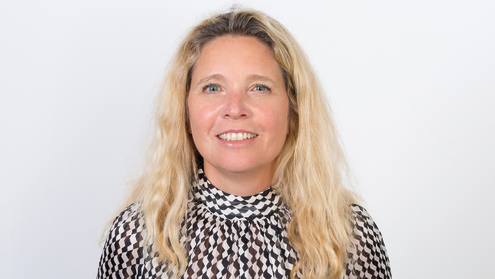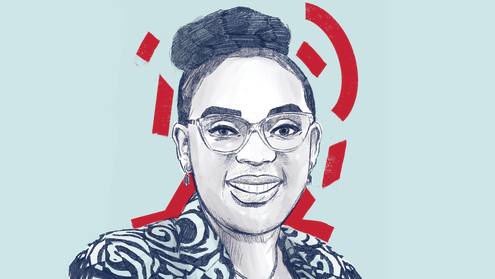The melting pot of nationalities that the UK has been renowned for is at risk of cooling. In June 2019, research showed that as many as one-quarter of workers in multicultural teams felt that their workplaces had become less accepting towards non-UK natives since the 2016 referendum on the UK's membership of the EU. Meanwhile, since then the number of EU citizens coming to the UK for work has halved compared with pre-referendum figures.
These factors threaten the UK’s ability to lead the ‘Fourth Industrial Revolution’, which will define how businesses and organisations operate from 2020 onwards, thanks to digital innovations such as drones, robotics and artificial intelligence (AI). These technologies offer plausible solutions to many of the challenges society will face in the coming years. Drugs and medication could become available to remote citizens in frontier markets, thanks to increased accessibility through drones (some diseases, such as malaria, could even be eradicated), and industries such as agriculture could become far more eco-friendly and efficient by utilising robotic technology to grow crops.
Digital divide
One prevalent challenge for governments and organisations across the world is knowledge. While there is plenty of talent out there, the distribution of information is unequal. This is mainly due to the so-called ‘digital divide’ that has been pervasive across developing countries for the best part of 20 years.
Even today, more than half of children globally are not attaining the minimum levels of reading and maths. Part of the problem is that many areas of the world still have inadequate access to knowledge through digital means. Less than one-quarter of the African population, for example, has access to the internet (as of 2018), and there has been a significant slowdown in the growth rate of global internet access from 19% in 2007 to less than 6% in 2018. Recent projections predict that universal internet access, a state that is defined as 90% of the world’s population having access to the internet, will not be reached by 2050.
With the internet being crucial to closing the knowledge gap, there is a huge challenge for governments and organisations worldwide to provide the means to gain access to the internet – and therefore knowledge – to those areas that currently have limited or no access. This particular challenge will be important for talent procurement in the future and will also be instrumental in ending inequality across the world.
Closing the knowledge gap
Based on digital identity programmes, countries such as Lithuania and the autonomous region of Hong Kong are now giving their citizens unprecedented access to public services through digital means – but this all began in Estonia. The Estonian Tiger Leap project, which was started in the mid-1990s, drove the creation of programmes to foster digital skills procurement across the population of Estonia, and this later became the foundation upon which e-Estonia was built.
The e-Estonia programme enables the country’s entire population to access 98% of public services online, from retrieving health records to voting digitally in elections – something that has been available to citizens since 2005. We also launched the pioneering e-Residency programme in 2014, which enables business owners and budding entrepreneurs to set up Estonian companies by proxy, giving their company a foothold in the EU. Thanks to these digital initiatives, Estonia is now the world's most digitally advanced country, according to a recent InterNations report.
The e-Residency initiative was founded to give anyone the opportunity to become digital residents of another country, and it is expanding across the world alongside other digital initiatives offering similar benefits to people. This ties directly to the current global issue around the knowledge gap in many ways.
Becoming an e-resident means that a person has a far easier and fluid way of sharing information and knowledge around the world through digital means. Someone who used to have no access to knowledge through the internet can apply to become an e-resident, which means that they can be given the choice to move to anywhere in Europe in search of better prospects. This is also true for those in war-torn countries or those that are experiencing ongoing conflicts.
Business continuity
For instance, a military coup engulfed Turkey in 2016 and terrorism was rampant in major cities such as Istanbul. Arzu Altinay, a Turkish national, was running a small tourism business that came to a complete standstill during the insurrection, worsened by the fact that services such as PayPal also went down. After doing some research, she realised that she could become a digital resident of another country, effectively shifting her digital business out of Turkey to a more stable location.
For Ms Altinay’s tourism company, Walks in Europe, it is important to use the internet and digital means to reach out to a globally dispersed client base. The coup not only posed a real threat on the streets, but also meant that millions of people couldn’t access the internet without restrictions; for example, accessing social media. The government censorship, and the instability following the coup, simply did not support Ms Altinay’s business model because of a lack of access to information and knowledge.
However, by becoming an e-resident in Estonia, she could overcome the limits of her country of origin. While remaining physically in Turkey, e-Residency empowered her to grow her business as she could gain greater access and freedom to access the internet and the information she required. This is one instance where digital identity truly helped a citizen in a country that censors and limits citizens’ internet usage, which directly impacts how the citizen can improve their prospects for the future.
Governments and authorities around the world should follow the e-Residency model, not only to give talented individuals the opportunities they deserve, but also to close the knowledge gap. This is a key component of the so-called Fourth Industrial Revolution and, if used correctly, could be a key way to reduce inequality.
Fluid nationality
Countries can expect to see the knowledge gap diminish thanks to digital identity platforms providing greater access to the internet. Providing the means for people to set up businesses in the EU or other prosperous jurisdictions can give budding entrepreneurs the ability to more easily launch their own ventures, and this potentially means that the business community could also become more diverse.
Given the fact that diverse teams generally work better, digital identity schemes have the potential to give birth to ground-breaking new companies, as it means talented people who have great ideas – but not necessarily the means to realise them – can fulfil them in a country where they can get access to those means.
This doesn’t mean to say that these entrepreneurs’ countries of origin would be negatively impacted by their citizens choosing to digitally launch companies elsewhere. Their business would, of course, benefit from what the EU (or other prosperous jurisdictions) can offer them in terms of access to a market, investors and customers, but they would be able to use that power to trade with other businesses and clients in their nation of origin, while still complying with the laws of the country offering them digital freedom. Such a scheme could help the UK maintain its position as a leader in the Fourth Industrial Revolution, for example.
Spreading prosperity
It is a win-win-win scenario for the entrepreneur and their venture, their country of origin’s economy and the economy of the nation issuing the digital identity. Therefore, schemes such as e-Residency have the potential not only to help fight inequality and close the knowledge gap in developing countries, but also to bring about enriched business opportunities and economic prosperity worldwide.
There are several things to be excited about when it comes to the Fourth Industrial Revolution. We believe the next decade will see technology becoming the main weapon in the world’s arsenal to fight inequality.
From drones offering the opportunity to fly supplies into impoverished rural areas and new innovations to sanitise water, to digital identity programmes giving people across the world the potential for self-fulfilment through entrepreneurship, we’re looking forward to a more equal and prosperous world as we progress further into the 21st century.
In this new age, the UK – and other countries – could be at the forefront, but they need to persuade, not dissuade, talent to start businesses in their country. This can be done by implementing a digital state services and identity scheme akin to Estonia’s e-Residency programme.
Ott Vatter is managing director of e-Residency, Estonia.












